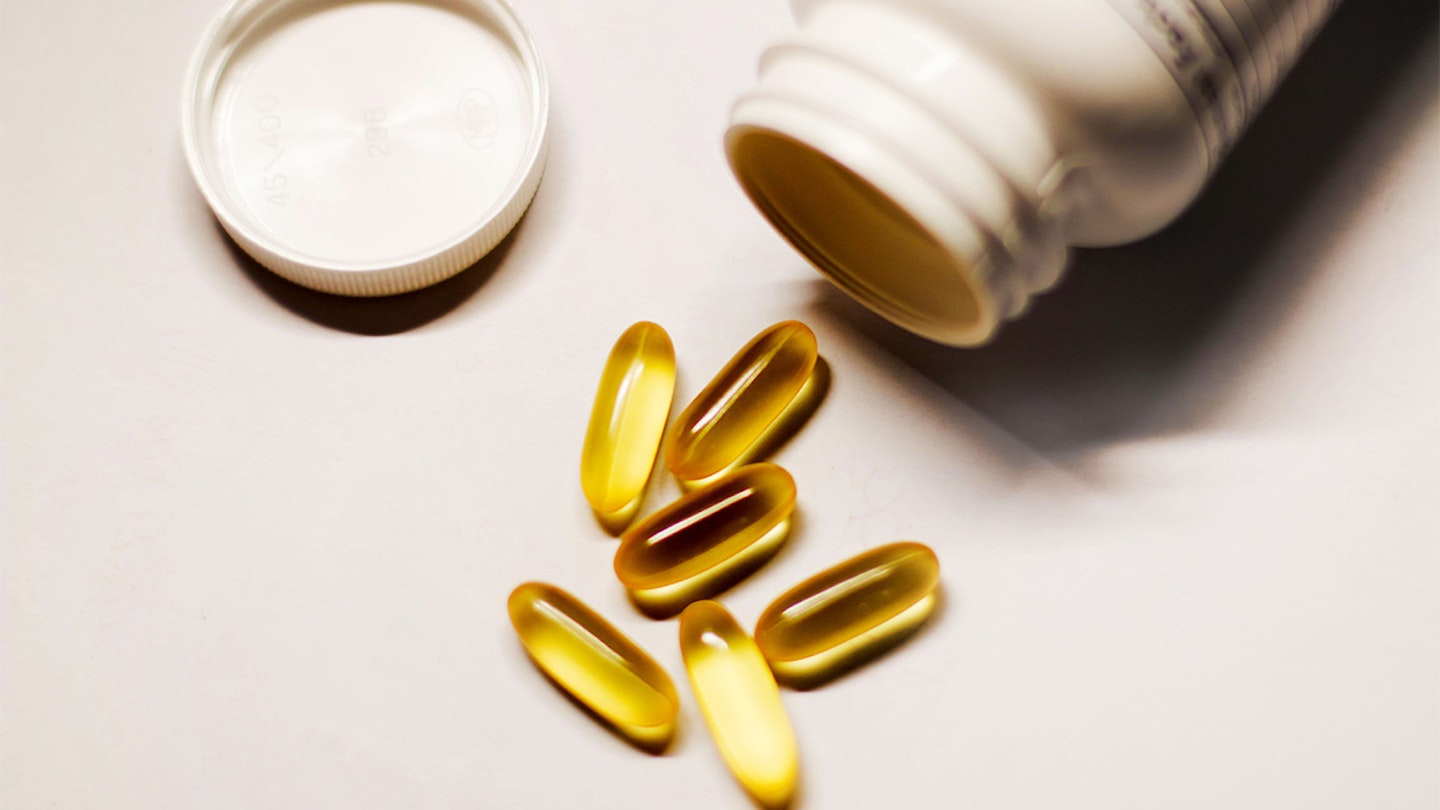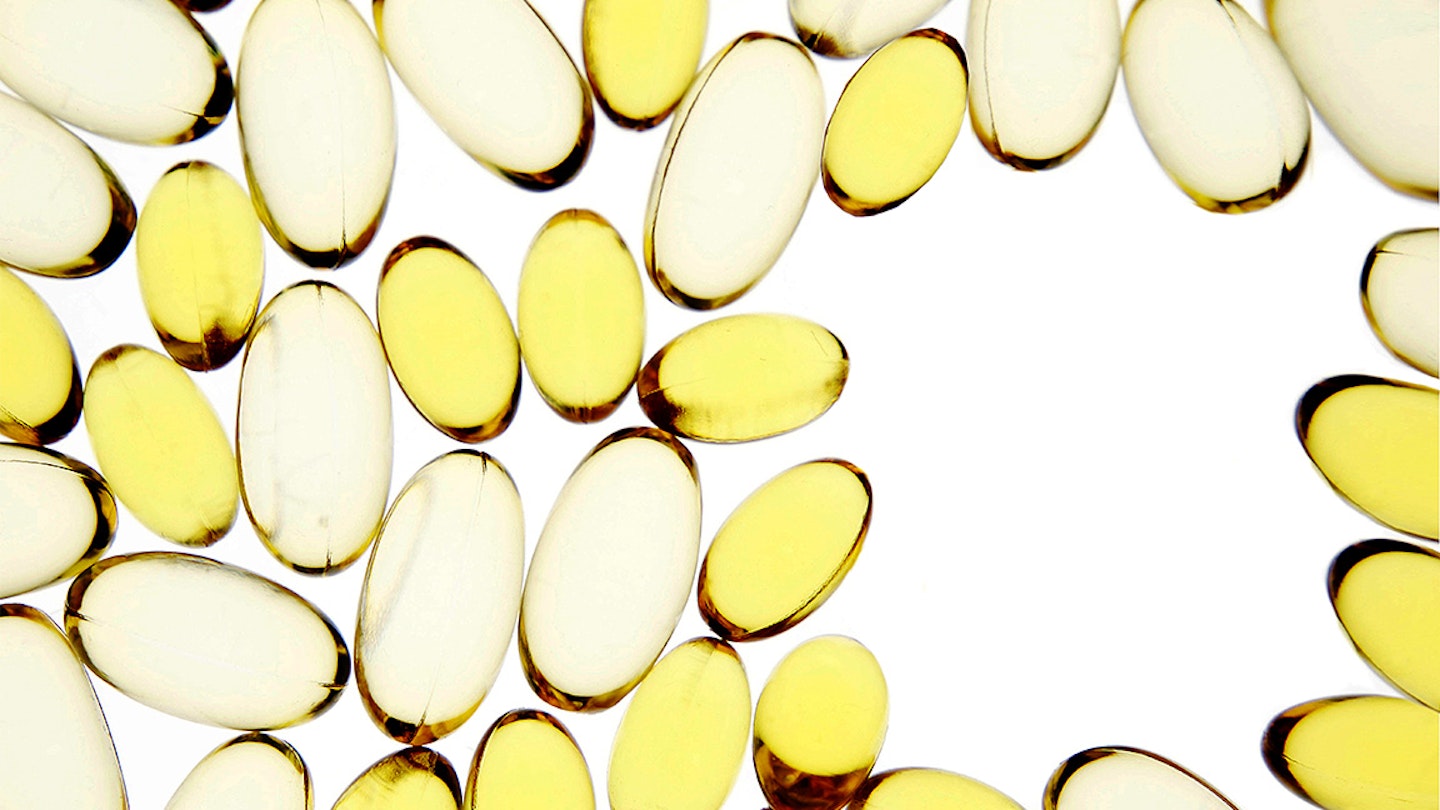Once the domain of obsessive body builders and elite athletes, sports nutrition supplements have become mainstream for athletes of all levels.
Runners, especially, have witnessed a revolution in race fuelling as specialists recommend multivitamins with iron for insurance, concentrated calcium boosters for better bones, and high-carb energy gels that are easier to digest on the trails than old-school sources of glycogen.
When news broke in the summer of 2018 of a review by British medical research charity Cochrane into the scientific reports stating that the much-vaunted omega-3 supplements were ineffective, it hit the headlines.
The Guardian: ‘Fool’s Gold; What Fish Oil Is Doing To Our Health’; The Telegraph: ‘Buy More Vegetables Instead Of Omega-3 Supplements’; The Sun: ‘It’s Oil A Myth’.
Is it time we started examining the claims of sports nutrition supplement makers too? Runners are among the millions of supplement users who have helped the sports nutrition market double in value – to around £800 million a year – since 2016 in the UK alone.
Demand for vitamins, powders, gels and multitudes of minerals among amateur athletes is at an all-time high. But should it be?
Independent experts suggest we shouldn’t ditch protein shakes, pills and potions just yet. “The Cochrane review only looked at omega-3 supplements and their relationship to heart and circulatory diseases,” explains Victoria Taylor, senior dietician at the British Heart Foundation. “So we can’t use it to draw conclusions about all supplements from this, or how they might affect health in other ways.”
What this new report does highlight, though, is that research should be constantly questioned. What works today may not tomorrow, as scientific methods develop and evidence grows.
That’s an annoying fact for the consumer, as well as being one that keeps the front pages of the tabloids contradicting themselves every six months, but it’s vital too. “When it comes to dietary recommendations, it’s important to make sure they’re based on up-to-date research,” says Taylor.
Advice on omega-3 supplements is a classic example of this. Until a few years ago they were recommended for people after they had a heart attack. “But as our understanding of the relationship between diet and health has developed and treatments have improved, this advice has changed,” explains Taylor. “Now they’re no longer recommended and this review further supported this.”
So what really works for trail runners today? Which supplements should we be taking to speed up recovery or shake-up performance? What’s the latest dietary evidence to help us run harder and stay healthier for longer? Read on for the answers...
What supplements are good for runners?

With so many supplements to choose from, which ones actually work and when should you be using them?
Pre-run prep: Caffeine
Best in hot coffee, canned drink or cold-capsule form. Coffee-lovers can breathe a sigh of relief as research continues to highlight how caffeine helps runners in many ways, including greater focus and mental alertness.
Research from Leeds Metropolitan University discovered that a caffeine hit an hour before endurance exercise resulted in trial subjects enjoying their exertions more. In other studies, it’s been linked to greater stamina and muscle glycogen conservation.
Most effective: In doses of 5 to 6 milligrams per kilogram of body weight. However, that can work out to around three cups of coffee, and it’s a diuretic so not ideal for hydration. Alternatively, try caffeine gels or energy drinks with caffeine.
Back-to-back runs: Beta-Alanine
This natural amino acid found in poultry and soya beans “reduces fatigue and improves performance during high-intensity exercise,” says Anita Bean, sports nutritionist and Clif Bar ambassador. A 2017 study from the University of Central Florida is the latest to highlight its qualities.
Most effective: In trials where beta-alanine has proven effective, doses of 4.8 g/day increasing to 6.4 g/day were used during the fortnight before a race.
Run longer: Branched-chain amino acids
BCAAs consist of three essential amino acids: leucine, valine and isoleucine. “These stimulate protein synthesis,” says Lisa Hesslin, registered nutritionist. “The presence of leucine in the bloodstream signals the body to start the protein synthesis – repairing and rebuilding muscle after exercise.”
Research suggests BCAAS supplementing may delay the mental fatigue endurance athletes suffer when blood levels of BCAAs fall.
Most effective: Before or during a run in liquid or gel form. “BCAA as free amino acids can immediately be used by the body for protein synthesis and as energy source in the muscles,” says Hesslin.
Run faster: Nitric oxide
Nitric oxide (NO) sourced from nitrates in foods increase blood flow to muscles. Researchers from the University of Exeter are among an increasing number of sports scientists who’ve found that drinking high-nitrate beetroot juice not only improves sprint performance, but may also speed up decision-making.
A review in Sports Medicine found that an ergogenic boost from nitrates has a limited range of between 5 to 30 minutes.
Most effective: In liquid form, by drinking 140ml of beetroot supplement.
Run stronger: Casein
Casein is an insoluble component of milk, with higher leucine content than plant-based protein supplements. It’s digested slowly in the gastrointestinal tract and has been shown to be an ideal ‘slow release’ muscle-repair option for athletes while sleeping.
Unlike other forms of protein, casein reduces muscle breakdown – part of the growth and ‘bulking up’ process – so may be especially effective for endurance athletes.
Most effective: Subjects studied by Dutch researchers from the University of Maastricht took a supplement mix (20g of casein protein, 60g of carbs) 30 minutes before bedtime on training days.
Run from pain: Glucosamine and chondroitin
Many runners swear by glucosamine supplements, but study results are mixed. Claims that it can cure osteoarthritis are unfounded, but some studies found knee pain sufferers recorded a 28% improvement in their condition when given glucosamine. Chondroitin has been shown to reduce inflammation and help joints remain fluid.
Most effective: When taken on the advice of a specialist – the consensus is that, while it may help relieve joint pain, it shouldn’t be used to mask injury and run through a pain barrier.
Run into old age: Iron
Iron is an essential component for oxygen-carrying red blood cells. Older runners, vegetarians and female athletes are at greater risk of iron deficiency due to the demands of training.
Endurance athletes have been known to be more prone to low iron levels, often because of a focus on carb-loading over high-quality protein.
Meat, fish and poultry are key sources of heme iron. Non-heme iron from dark leafy green vegetables and soy is sourced via supplements too.
Most effective: Supplementing your diet with iron if you have symptoms that may be linked to a deficiency – such as poor performance in training, constant fatigue and increased prevalence of infections – should be done on medical advice after a blood test.
Run, rest, run again: Magnesium and Vitamin D
“Magnesium plays a crucial role in optimal muscle contraction, bone strength and energy production, helping to sustain the high-energy output necessary for endurance performance,” suggests Bean.
“Vitamin D is essential for optimising bone mass, muscular performance and immune function. Low levels can result in impaired muscle function, weak bones and depressed immunity.”
Most effective: Public Health England recommends taking a daily 10-microgram supplement during autumn and winter. When it comes to magnesium supplements, a Clif energy bar will provide around 25% of your daily needs, and is small enough to carry with you on the trail.
Note: If you are a competing athlete and are considering taking supplements, please refer to advice from UK Anti-Doping.
Top image: Alamy
